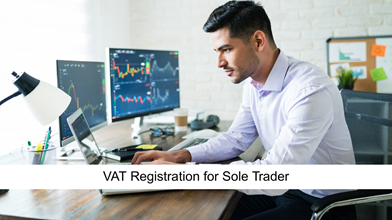
If you run your own business as a sole trader, understanding VAT registration is essential. You must register for VAT if your taxable turnover exceeds £90,000 in any 12-month period. Once registered, you need to charge VAT at the correct rate on the goods and services you provide.
Even if your turnover is below the threshold, you can choose to register voluntarily. This may help you reclaim VAT on business purchases and appear more established to other VAT-registered companies, but be aware it also adds administrative tasks.
Registering is a simple process done online via HMRC. After registration, you'll receive a VAT number and must keep digital records of your sales and purchases, submitting regular VAT returns to HMRC.
As a sole trader, you need to register for VAT if your taxable turnover exceeds £90,000 in any 12-month period. This means if your total sales of VAT-taxable goods and services go over this limit, you must register with HMRC within 30 days.
You also need to register immediately if you expect your turnover to exceed £90,000 in the next 30 days. Registering on time avoids penalties and ensures you comply with tax rules.
As of July 2025, the VAT registration threshold for sole traders remains at £90,000 in a rolling 12-month period. This means if your taxable turnover exceeds £90,000 at any time, you must register for VAT with HMRC within 30 days. Taxable turnover includes most goods and services you sell, excluding exempt supplies.
If you expect your turnover to pass this limit within the next month, you must register immediately. Registering correctly helps you avoid penalties and ensures you comply with UK tax laws. The threshold is set to stay the same until March 2026.
When you run your own business as a sole trader, understanding the difference between compulsory and voluntary VAT registration can help you make the best decision for your finances and growth. Compulsory VAT registration is a legal requirement once your taxable turnover exceeds £90,000 in any 12-month period. Voluntary registration, on the other hand, allows you to register for VAT even if your turnover is below this limit, offering certain strategic benefits.
Here’s a clear comparison between the two to help you decide:
|
Aspect |
Compulsory VAT Registration |
Voluntary VAT Registration |
|
When to Register |
When taxable turnover exceeds £90,000 within 12 months |
Anytime, regardless of turnover below the £90,000 limit |
|
Legal Requirement |
Mandatory by law |
Optional and based on business choice |
|
Charging VAT |
Must charge VAT on all eligible sales |
Must charge VAT once registered |
|
Reclaiming VAT |
Can reclaim VAT on business expenses |
Same benefit: reclaim VAT on business purchases |
|
Administrative Work |
Required to keep detailed records and submit VAT returns |
Same administrative obligations as compulsory registration |
|
Impact on Customers |
Prices may increase due to VAT added |
Could affect pricing and competitiveness |
|
Business Perception |
Seen as established; mandatory once threshold exceeded |
Can improve business credibility even if turnover is low |
Choosing between compulsory and voluntary registration depends on your business size, growth plans, and ability to manage extra paperwork. Voluntary registration might suit you if you want to reclaim VAT early or appear more established, but remember you will take on all VAT responsibilities. It’s wise to consult an accountant to decide what fits your individual needs best.
Registering for VAT as a sole trader can seem daunting, but following these steps will make the process clear and manageable. Here’s how you can do it, step by step:
Taking these steps ensures your VAT registration goes smoothly and keeps your sole trader business fully compliant.
If you’re a sole trader, deciding whether to register for VAT can feel daunting. Here’s a straightforward look at the key benefits and drawbacks, so you can decide what’s right for your business.
Consider your business goals and customer base carefully before deciding if VAT registration is the right step for you.
MTD is a government initiative that changes how you keep VAT records and file returns. As a VAT-registered sole trader, here’s what it means for you:
If you are a sole trader or self-employed and want to register for VAT, we are here to help you every step of the way. Our expert team of accountants understands your unique needs and will guide you through the entire VAT registration process smoothly. Connect with us today for professional VAT services tailored just for you. Contact us at 0208 8611685 or email info@phs-uk.co.uk. Let us handle your VAT registration so you can focus on growing your business.
Frequently Asked Questions